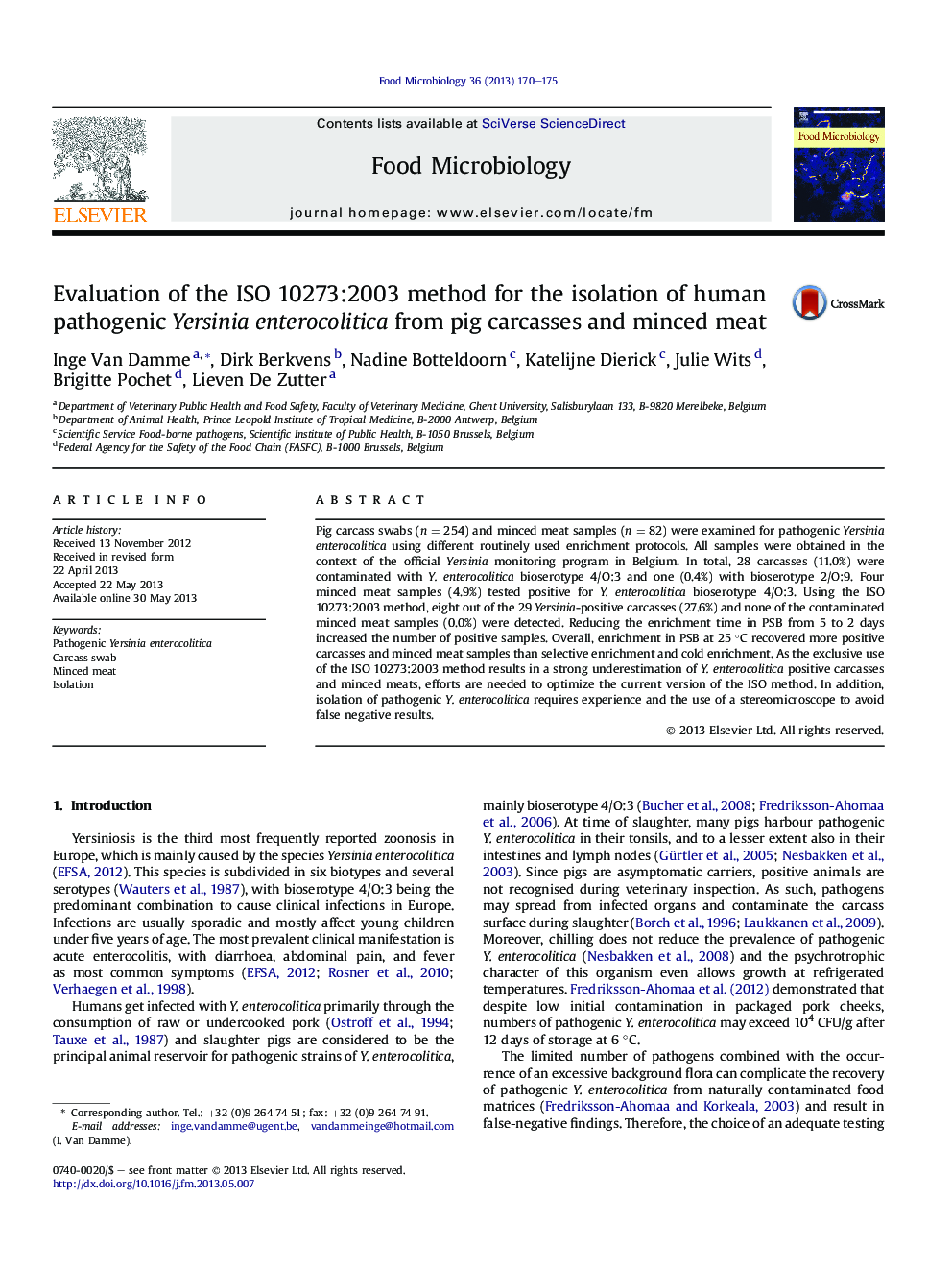| Article ID | Journal | Published Year | Pages | File Type |
|---|---|---|---|---|
| 6288757 | Food Microbiology | 2013 | 6 Pages |
Abstract
Pig carcass swabs (n = 254) and minced meat samples (n = 82) were examined for pathogenic Yersinia enterocolitica using different routinely used enrichment protocols. All samples were obtained in the context of the official Yersinia monitoring program in Belgium. In total, 28 carcasses (11.0%) were contaminated with Y. enterocolitica bioserotype 4/O:3 and one (0.4%) with bioserotype 2/O:9. Four minced meat samples (4.9%) tested positive for Y. enterocolitica bioserotype 4/O:3. Using the ISO 10273:2003 method, eight out of the 29 Yersinia-positive carcasses (27.6%) and none of the contaminated minced meat samples (0.0%) were detected. Reducing the enrichment time in PSB from 5 to 2 days increased the number of positive samples. Overall, enrichment in PSB at 25 °C recovered more positive carcasses and minced meat samples than selective enrichment and cold enrichment. As the exclusive use of the ISO 10273:2003 method results in a strong underestimation of Y. enterocolitica positive carcasses and minced meats, efforts are needed to optimize the current version of the ISO method. In addition, isolation of pathogenic Y. enterocolitica requires experience and the use of a stereomicroscope to avoid false negative results.
Related Topics
Life Sciences
Agricultural and Biological Sciences
Food Science
Authors
Inge Van Damme, Dirk Berkvens, Nadine Botteldoorn, Katelijne Dierick, Julie Wits, Brigitte Pochet, Lieven De Zutter,
